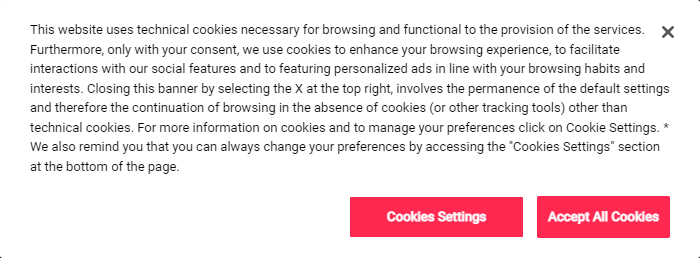As the digital age advances, more and more data is generated and collected in Digital Marketing.
Users leave traces as they browse the web every time they click a link or go to a page. Imagine, then, the volume of data in the Big Data universe.
The data websites collect from users are called cookies. They help brands better understand the profile of those who visit their website and improve their browsing experience.
The problem is the collection and use of this data are being questioned regarding user privacy.
The issue is so hot that Google Chrome, the most used browser in the world, announced the end of third-party cookies.
This measure contributes to the protection of personal data, but at the same time, affects Digital Marketing strategies that in recent years have relied on browser cookies.
So it is time to ask:
- What does a cookieless future look like in Digital Marketing?
- How should companies prepare themselves to work without this data in their strategies?
This is a fundamental transformation for a market that has become accustomed to accessing this data.
Now, we will look into what cookies are and how these changes can affect your company. More specifically, we will tackle the following questions:
Download this post by entering your email below
What are Cookies?
Cookies are text files that a website sends to the browser when it receives a user’s visit.
The goal is to store important data and help improve your browsing experience. They are used on most websites and are a standard procedure for using the internet today.
Cookies store the user’s access history to pages and applications and their interactions (clicks, forms, passwords, etc.) for a certain period.
Thus, every time the user re-accesses the website that sent the cookies, the browser sends the data back so the pages load more quickly, already containing the visitor’s preferences and previous data.
This allows, for example, the website to keep the user logged in or remember the items they left in their shopping cart.
In addition to optimizing website visits, cookies also serve to enhance Digital Marketing strategies by personalizing the experience and aligning content to the interests and behaviors of each user.
Differences between first and third-party cookies
To understand what cookies are and why this subject has been hot lately, it is also essential to know the differences between first and third-party cookies.
Both types of cookies technically work the same way. They are data collected by the website and sent to the browser, with each user’s browsing history and interactions.
The difference between first and third-party cookies is how they are collected and what they are used for.
First-party cookies are created by the same website the user is visiting.
They collect data such as language and payment method preferences, form information like username and password, products stored in the cart, and so on.
Third-party cookies are created by a domain other than the one the user is visiting. They are generally used for marketing and advertising purposes, as they:
- Monitor the user’s navigation between different websites (cross-site tracking).
- Direct retargeting ads, according to past behavior.
- Deliver ads to various websites in an optimized way (ad serving).
The current cause of controversy is third-party cookies, which have already been discontinued in some browsers, including Google Chrome.
Primary cookies are supported by all browsers, although users can disable them in the browser settings.
Why are Cookies so Important?
Cookies can be used for many different purposes.
Despite the controversy regarding data privacy, cookies are not the enemy. The problem is how they are used — but we will come to that later.
For now, let’s understand what it is about cookies that make them so important for the internet and Digital Marketing.
Generally speaking, cookies are used to optimize users’ web experiences and enhance the content and ads they are shown according to their interests.
Now, to better understand how this happens, let’s talk about the types of cookies that a website can collect.
There are different ways to classify them, but the following sections define the most common classifications used by websites.
Strictly necessary cookies
These are technical cookies, essential to the functioning of a website. Without them, the user cannot even access a website’s services and features.
They are not used for advertising and communication. They serve, for example, to:
- Identify that the user is logged into an account on the website.
- Remember previously entered information on website forms.
- Ensure the security of users in their authentication.
Functional cookies
Functional or functionality cookies are important because they offer a more personalized experience on the website, based on settings the user has already defined.
They can be used, for example, to:
- Remember language preferences, text size, layout, etc.
- Remember whether the user has already answered whether they wish to take a survey or not.
Performance cookies
Performance or measurement cookies are used to collect data about website traffic and visitor profiles.
They are the data that Google Analytics captures, for example, to understand how users use the website, which pages they visit, which links they click on, among other actions.
It is important to know that performance cookies do not identify users individually.
The website administrator can only know how many people visited a page, but not that James visited the Sports page and clicked on the volleyball news, for example.
So, performance cookies are important for brands who want to:
- Analyze website and Digital Marketing performance metrics.
- Know their audience better to improve brand strategies.
- Check the efficiency of the website’s communication.
- Identify shortcomings in pages to optimize the user experience.
Targeting cookies
Targeting cookies are used to carry out advertising campaigns.
Based on user navigation and behavior data, they are used to:
- Segment a more precise target audience for online advertising campaigns.
- Deliver ads that are aligned to the user’s profile and interests.
Users can also disable this type of cookie, but they will not stop seeing ads on websites. The only difference is they may see ads that are unrelated to their profile.
Why will Cookies be Extinct?
You may have seen a warning like this when accessing a website:

These notifications alert users that their data is being collected by the website they are browsing.
Cookie alerts have become more common since the emergence of data protection laws, which require users to be informed that their data will be stored and what it will be used for.
This concern with the privacy of users’ data motivated browsers to announce the end of third-party cookies.
According to Think with Google, searches for “online privacy” grew 50% globally in 2020 compared to the previous year.
This means there is a global concern about this issue. And Google Chrome is said to be responding to this demand with its plans to remove support for third-party cookies.
In general, cookies are harmless and can only be used to improve your experience on websites. The problem is that third-party cookies may not guarantee the security and protection of users’ data, which affects transparency in their processing.
One risk to the protection of personal data is the possibility that companies will sell the information they collect to other businesses without users knowing.
From then on, the use becomes unlawful, even if they are only using the data for advertising purposes.
This has already happened, for example, in the Cambridge Analytica case, which reinforced the warning about this type of practice.
According to a Pew Research Center survey published on Google’s blog, 72% of people feel that everything they do on the internet is tracked. Furthermore, 81% say the potential risks of using their data outweigh the benefits.
That’s why Google Chrome and other browsers are committed to eliminating third-party cookies and building a privacy-first web — even if it means transforming the current marketing and advertising marketplace.
What Does the End of Cookies Mean?
When we talk about a cookieless future, we’re talking about the end of third-party cookies.
It is possible to build a web with cookies and Big Data in a transparent and secure way. But to do that, we need to reshape the way the internet and Digital Marketing have worked in recent years.
Below, we’ll look at how the end of cookies will affect Google, advertisers and users themselves in the coming years. Check it out:
For Google
Google, through its Chrome browser, has joined the cookieless movement. But the company itself knows it will be affected.
After all, Google’s search engine uses users’ cookies to personalize and optimize their search experience, based on data from the pages they access most and the searches they perform.
For advertisers
For advertisers, the end of third-party cookies is far from the end of online advertising.
But it is undeniable that this change brings important impacts, such as reducing the user data available and adopting new mechanisms — with more transparency and security assurance for users — to obtain data.
For users
For users, a cookieless future in Digital Marketing tends to bring more security to their data while browsing the web. This is the intention of this whole movement.
On the other hand, the impacts to online advertising could also mean a browsing experience that is less personalized and relevant to your interests — at least until the marketing industry adapts to this transformation.
What are the Best Alternatives to Replace Cookies?
Ok, but if browsers are proposing a cookieless future for Digital Marketing, what are the alternatives?
Google knew this move would be impactful for the advertising industry and initiated the Privacy Sandbox, which brings together a series of internet-wide measures to define operational parameters for digital advertising that ensure user privacy.
Among the proposals is the FLoC (Federated Learning of Cohorts) algorithm. This technology aims to gather users into large groups (cohorts) with common browsing habits and then target relevant ads based on their characteristics and interests.
This way, the algorithm can blend individuals in large crowds of people with common interests. Thus, companies would not have access to individualized data, only to cohorts.
Furthermore, as an alternative to the “cookieless future,” Google recommends strengthening first-party data.
In a world that privileges privacy, it is important to establish close and direct relationships with customers instead of relying on third parties.
For marketing, this type of relationship strengthens users’ trust in brands and offers them a more meaningful and engaging experience throughout the buyer’s journey.
How do we Deal with a Cookieless Future?
How can your company prepare for a cookieless future in Digital Marketing?
If you base your decisions and strategies on third-party cookies, it is important to start adapting. Google Chrome has promised to phase out third-party cookies by 2023.
Here are some guidelines:
Collect data directly from consumers
Instead of relying on third-party cookies, explore other data collection mechanisms that deal directly with consumers.
For example, you can run market research, satisfaction surveys, and social media polls.
Also, offer interactive content or helpful materials for free in exchange for user data. This way, you build a closer and more direct relationship with consumers without compromising their data protection.
Be transparent
In the face of concerns about the privacy of personal data and the validity of data protection guidelines, there is no other way to relate to users: brands need to be transparent.
There is no more room for shady attitudes that hide the real reasons for collecting users’ data. They need to know how and why you want to collect their data.
This is not only a legal obligation now but also a way to build a trusting relationship with consumers.
Create a privacy policy
The privacy policy is also an obligation defined by the data protection guidelines in many countries.
It must be accessible on the website, in clear and transparent language, and provide information about the uses and purpose of user data collection.
People should also know how to exercise control over their data — to opt-out of the company’s records or delete certain information from their registration, for example.
And these actions should be easy and quick for the user to do.
Wrap Up
Being mindful of data privacy and transparency in relationships with consumers is a path with no return.
Every day the internet permeates more of our lives. This means that sensitive data is increasingly being collected.
Therefore, users want to have secure relationships with companies so their information is not misused.
The cookieless future of Digital Marketing is approaching fast, and your company needs to adapt. Start thinking now about corporate measures for dealing with data and marketing strategies that respect users’ privacy.
Want to know how to do that? Then check out our Digital Marketing and Privacy Guide!











